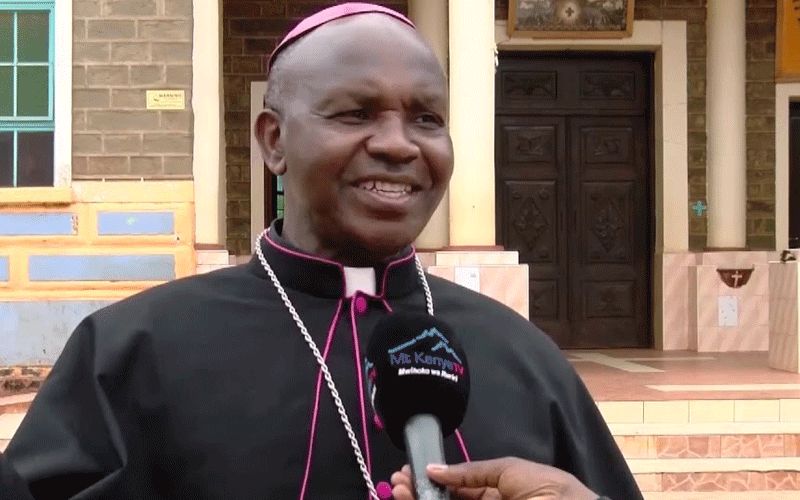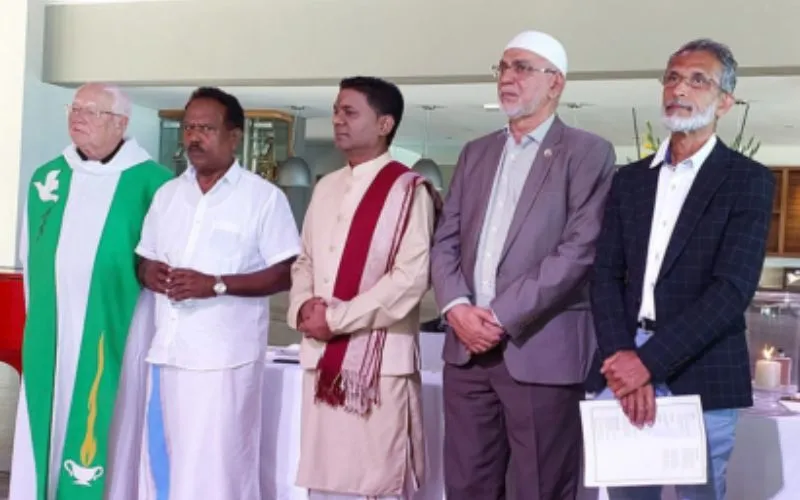He underscored, “Everything should be done with maximum openness, and testing should not be carried out on unsuspecting citizens.”
In addition, the Bishop regards the alleged plans as disrespectful to Kenyans and a possible indicator of opportunistic tendencies by foreign agencies that take advantage of the “poor” who are bribed into human subject research unethically.
“The ‘Glory of Kenya’ that we sing about in our National Anthem implies that Kenyans deserve respect,” Bishop Wainaina observed and advised, “All of us must remain vigilant to the foreign insurgences including research agencies that plan to come and lure poor Kenyans with money, and instill fear of the disease in order get people to agree to undergo trials of such vaccines and drugs.”
He added, “Poverty, it must be said, or sickness does not remove the dignity of a person. The dignity of the poor must nevertheless be protected.”
As a way forward, the Kenyan Prelate who has been a Bishop since June 2009 urged relevant Kenyan “authorities to take the necessary steps, even to deny such agencies entry into our Country to carry out trials of vaccines and drugs until the safety of Kenyans and their dignity are guaranteed.”
(Story continues below)
He pleaded with Kenya’s President Uhuru Kenyatta “not to allow any medical practice, whether by local or foreign agencies, that would compromise the dignity of Kenyan citizens.”
President Kenyatta has previously dismissed reports claiming that UK-based scientists are considering testing a vaccine for COVID-19 in Kenya after Fergus Walsh, BBC’s Medical Correspondent had said during an interview that trails in Kenya were being considered, remarks that triggered outrage from Kenyans.
Referencing the team of scientists in Oxford behind the potential COVID-19 vaccine, Walsh told BBC in April, “If they don’t get early quick results from the UK, they are considering a trial in Kenya where the epidemic of the coronavirus will be on the rise.”
On April 24, Kenya’s Chief Administrative Secretary (CAS) in the Ministry of Health, Rashid Aman denied any knowledge of plans to have vaccine trials in Kenya conducted.
In a televised address to the nation a day later, President Kenyatta said, “There are those saying that research is ongoing where Kenyans are being used as guinea pigs for vaccine tests; there is no truths to such allegations.”
The President further said, “Kenya Medical Research Institute (KEMRI) and Primate Research Institute are involved in a global effort to try and find a vaccine and once we have found one and have reached an area where this vaccine can be tested on humans, we shall let you know;
“Nothing will be kept in the dark,” President Kenyatta assured April 25.
Magdalene Kahiu contributed to the writing of this news report
Fr. Don Bosco Onyalla is ACI Africa’s founding Editor-in-Chief. He was formed in the Congregation of the Holy Ghost Fathers (Spiritans), and later incardinated in Rumbek Diocese, South Sudan. He has a PhD in Media Studies from Daystar University in Kenya, and a Master’s degree in Organizational Communication from Marist College, New York, USA.








